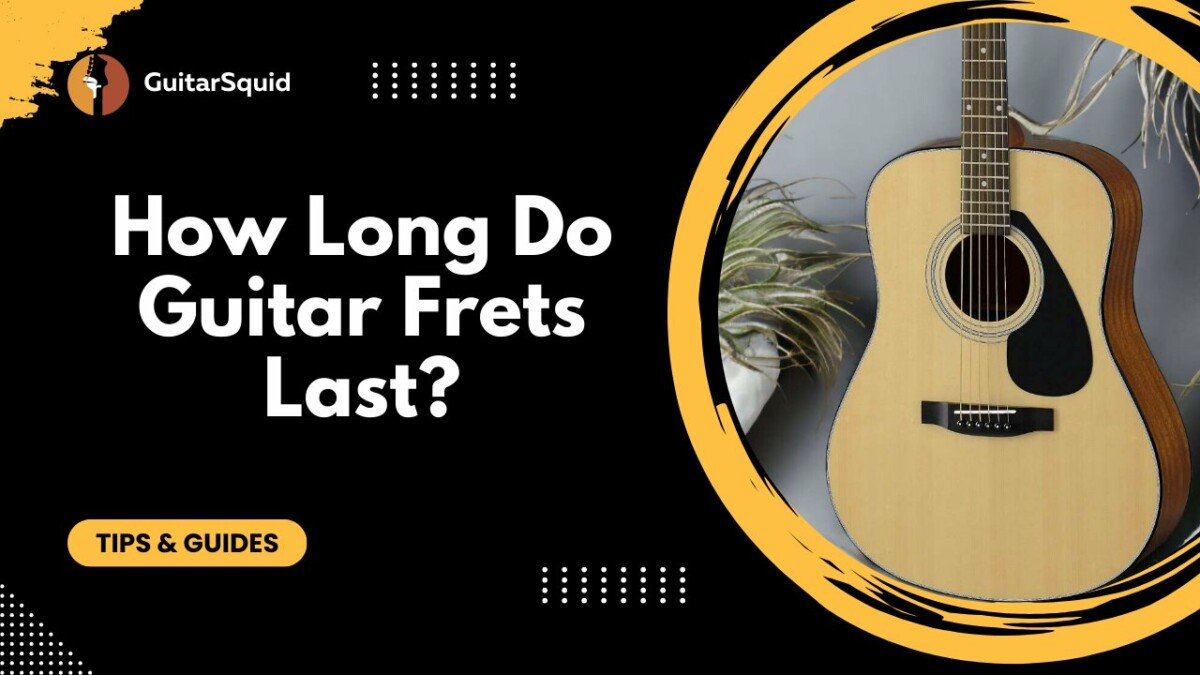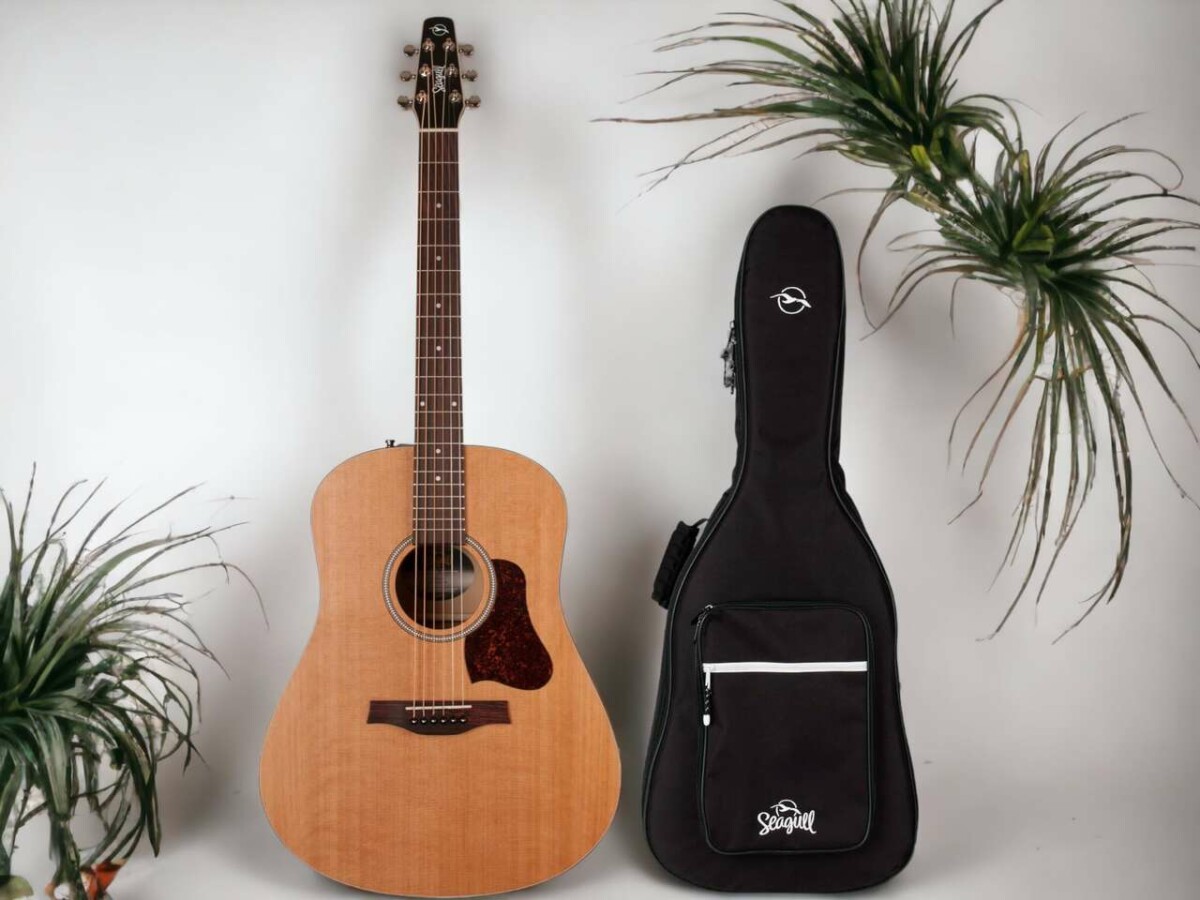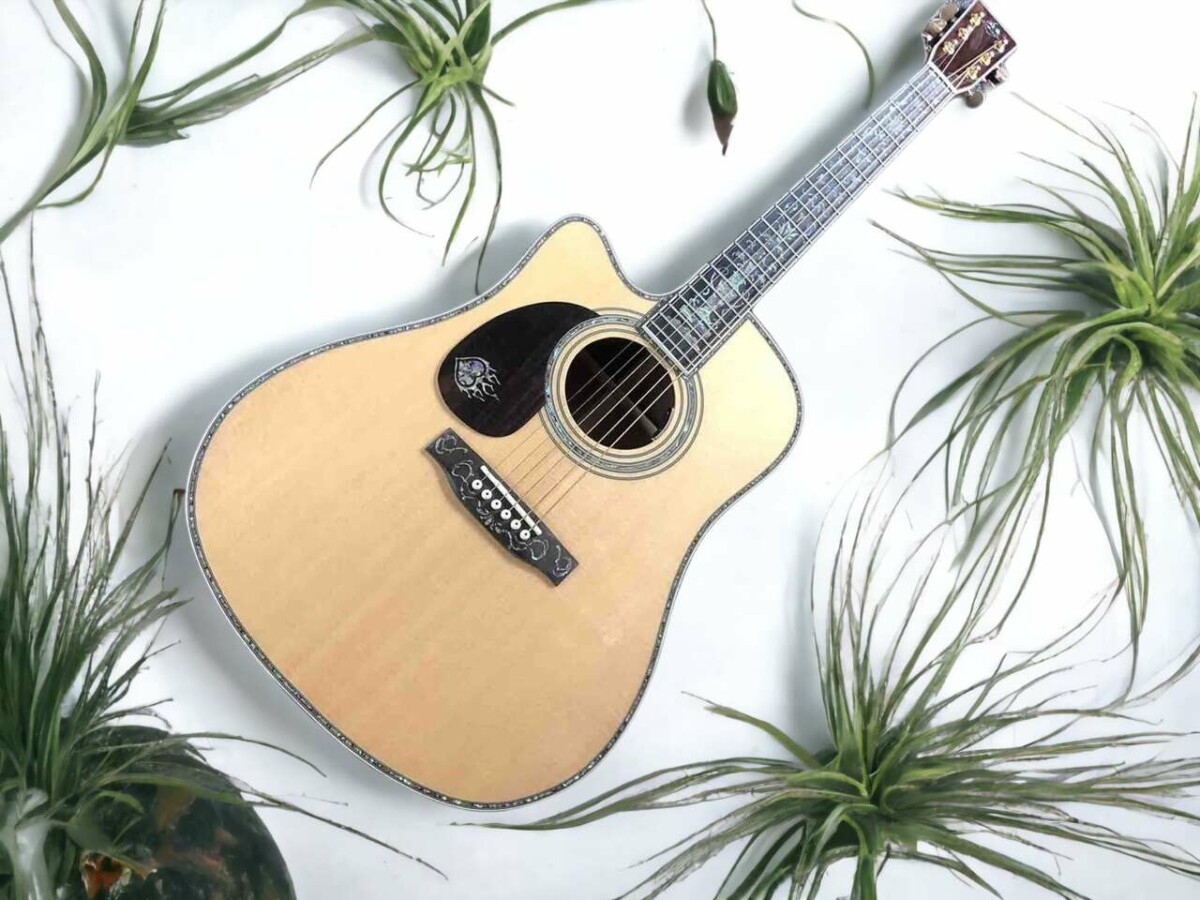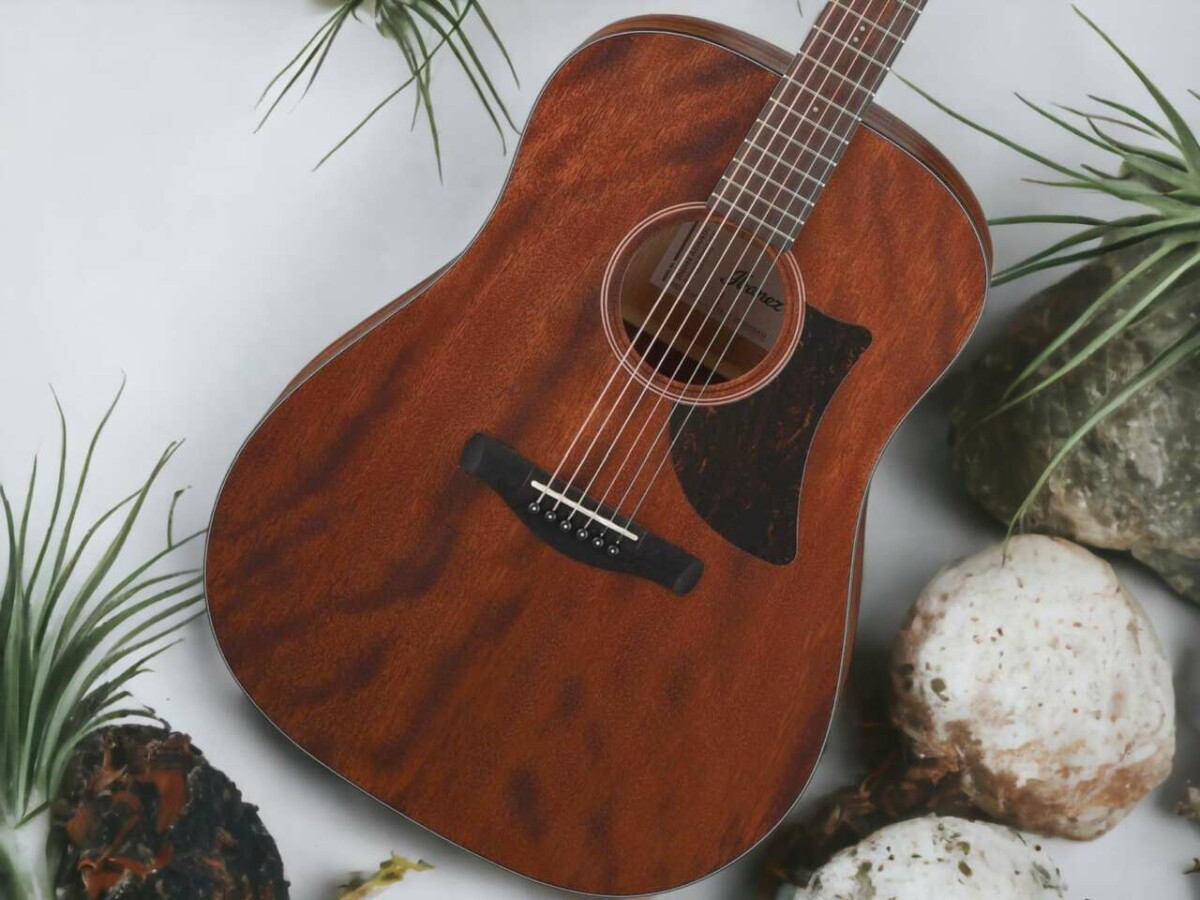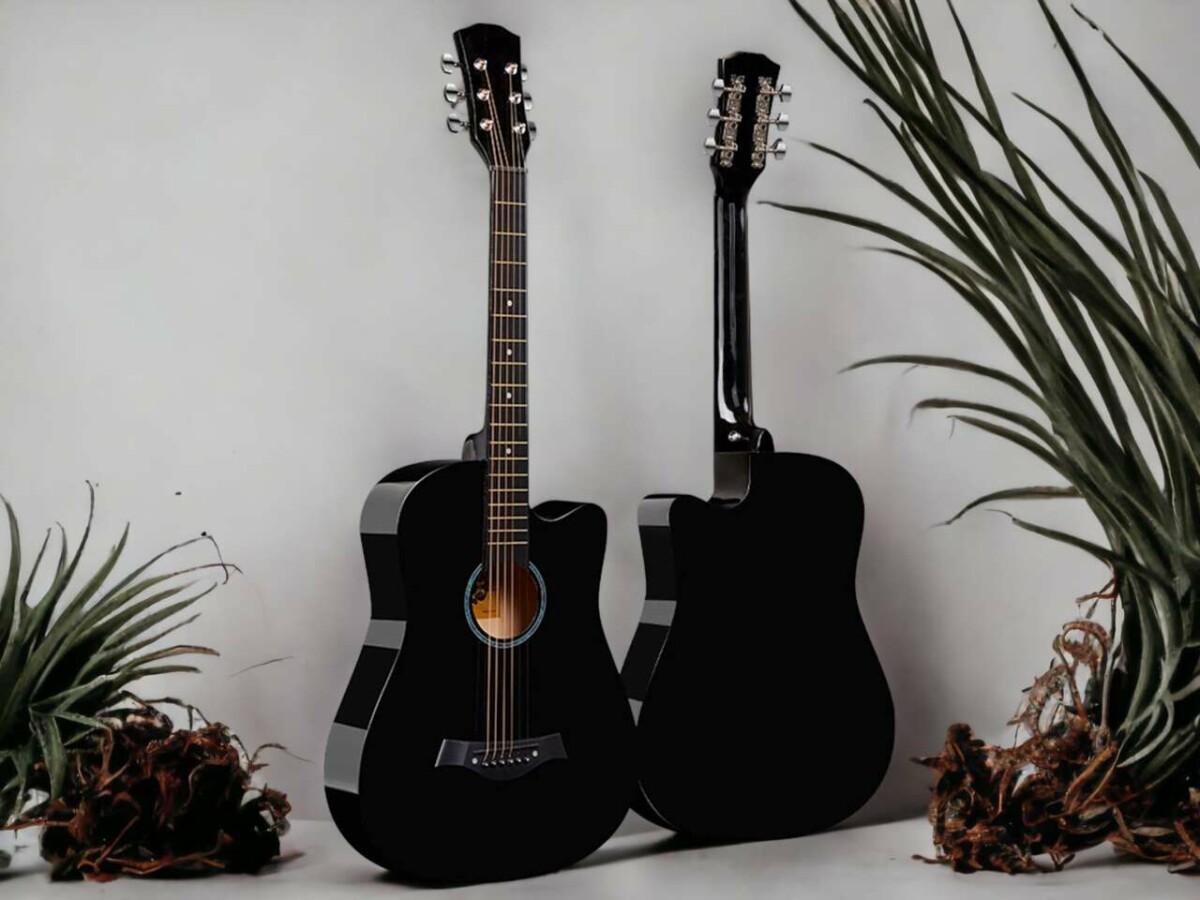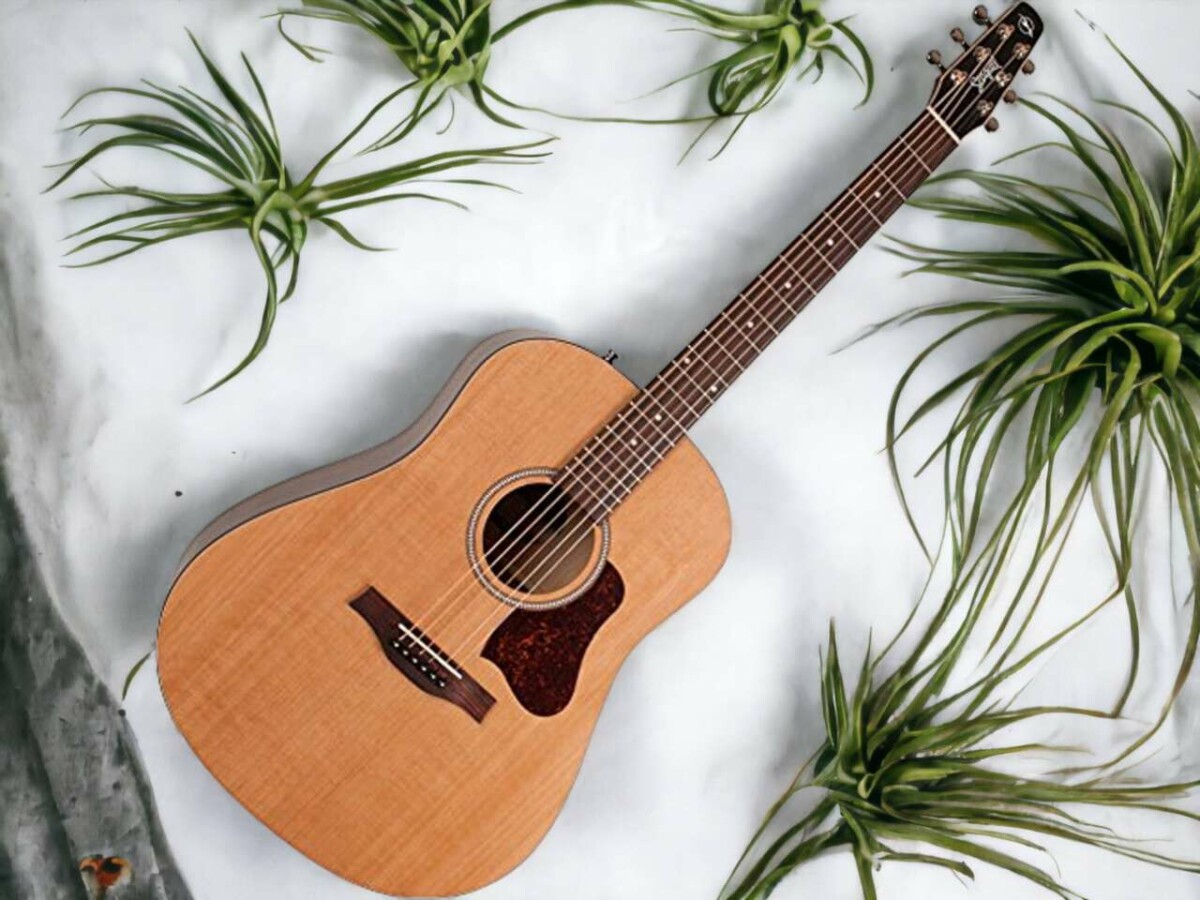So there you are, absolutely lost in the rhythm of your beloved six-string, when a thought pops into your head – ‘Just how long are these frets gonna stick around?’
It’s not as straightforward as you might think. The longevity of your frets depends on a few variables, including the materials they’re made from, how hard you go when you’re playing, and what kind of strings you’re shredding on.
If you’ve got nickel silver frets, they might burn out pretty fast, but if you’re rocking C425 copper alloy or stainless steel frets, they’re gonna stay sharp for a lot longer.
So, let’s delve into the details, and figure out how you can squeeze the most life out of your guitar frets.
How Long Can I Expect Guitar Frets to Last?
The lifespan of guitar frets varies, depending on how often you play, the gauge of your strings, and your style of playing. However, with regular playing, they could last several years. Frequent or heavy use may need occasional fret leveling or, in severe cases, a complete fret replacement.
So, you’re curious about what might be messing with your guitar frets’ longevity, huh? Well, it’s not as simple as just one thing.
The material of the fret, the way you play, and even the kind of strings you jam with all come into play. The usual suspects for fret damage include rust, your sweaty palms, and the intense strain from steel strings.
But here’s the cool part – your guitar is tougher than you think. It can handle a lot, but you gotta treat it right. By taking care of it the way it deserves, and being mindful of how you play, you can seriously lengthen the lifespan of your frets.
Think of it this way – you’re not only a musician, but also the unsung hero who looks after their instrument.
Make it a habit to clean your strings regularly to keep rust at bay, and give your fretboard a good wipe down to get rid of sweat and all that nasty stuff.
The Role of Fret Materials in Durability
Hey, so it turns out that how long your guitar frets last isn’t just about how you play. What they’re made of can seriously impact their lifespan too. Basically, the type of material you choose for your frets is a big deal if you want your guitar to stick around for the long haul.
For instance, let’s talk about nickel-silver and stainless steel – two of the most popular materials for frets. Nickel-silver is pretty common, but it tends to wear out faster. It’s like that pair of jeans that looks great but starts to fray after a few months.
Then there’s stainless steel. It’s kind of like the high-end designer jeans of the fret world. It’s a bit more expensive, but it can put up with a lot of rough playing and still look good. It’s like the marathon runner of fret materials.
So, when you’re picking out a new guitar or thinking about swapping out your frets, make sure you consider your options. Think about it like you’re shopping for a car – you wouldn’t just buy the first one you see, right? You gotta weigh the pros and cons.
The right material can save you a ton of hassle and money in the long run. It could keep your guitar sounding sweet and melodious for many jam sessions to come.
How Playing Techniques Impact Fret Longevity
The way you jam out on your guitar can seriously affect how long your frets last. If you’re one of those who really lean in, pushing the strings hard against the frets, chances are you’re gonna see them wear out quicker.
On the flip side, if you’re more chill, with a gentle touch and smart choice of string material, you can definitely add some years to your frets’ life. This way, your prized guitar stays prime and ready for all those epic jam sessions.
Fretting Hand Technique Effects
The way you grip your guitar and press those frets can totally mess with how long your guitar lasts, you know? Try working on how nimble your fingers are and chill out on the pressure a bit – trust me, you’ll see a massive difference.
Playing the guitar isn’t a strength contest, it’s more about the subtle touch. It’s all about those light, spot-on touches on the frets, and that’s something that only comes with practice. You’ll get that sweet sound and won’t be stressing your instrument out.
And don’t forget, going ham on the pressure can really wear it down over time. So, find that sweet spot – strong enough to kill that annoying buzz, but soft enough to keep your frets in good shape.
Your guitar is like a piece of art, treat it with the respect it deserves and it’ll keep belting out those killer tunes for years.
String Material and Wear
You know, it’s not just about how you hold your guitar, but what kind of strings you use can play a big part in how long your frets hang in there.
Consider how different string materials can grind down your frets. Take nylon strings, for example. They’re pretty chill on your frets compared to their roundwound buddies. Why? Well, nylon’s a bit softer, so it doesn’t beat up on your frets as much.
Now, on the flip side, roundwound strings, while they do give you a brighter sound and keep the notes ringing longer, can be a bit of a bully to your frets because of the wire wrapping. So, if you’re measuring the wear and tear between nylon and roundwound strings, the latter might be a bit more of a fret hog.
It’s all about finding that sweet spot between achieving the sound you want and keeping your beloved guitar in good shape. Just remember, how you play and what strings you use come together to decide how long your frets are gonna last!
The Effect of String Materials on Fret Wear
So, let’s talk about the role your guitar strings play in how quickly your frets wear out. It’s not just about the type of fret material you’re using. The material of your strings is a huge game changer too.
Take nylon versus roundwound strings for instance – it’s like comparing apples to oranges. Nylon strings, being on the softer side, are basically a fret’s best friend. They’re easy on your frets, not causing too much damage.
On the other side of the spectrum are roundwound strings. These guys are like little sandpaper soldiers, marching on your frets and speeding up the whole wear and tear thing.
And while we’re on the topic, let’s not forget about string gauges. It’s not rocket science – lighter gauges are gentler on frets while heavier gauges are like the gym buffs, putting a lot more pressure and fast-forwarding the wear-out process.
Identifying the Signs of Fret Wear and Potential Issues
Alright, let’s talk about something crucial here, recognizing the signs of fret wear to avoid messing up your guitar’s game. There are five major red flags that you need to be aware of.
First off, keep an eye out for dents or ridges on the frets. You’re most likely to spot these where the strings make contact. If you see them, that’s a big no-no.
Secondly, if you start hearing some annoying buzzing noises while you’re jamming, it’s most probably your worn-out frets screaming for attention.
Thirdly, got some intonation issues? If you’re constantly struggling to keep your guitar in tune, the frets could be your main troublemaker.
The fourth sign is a tricky one. If you’re having a hard time getting your notes right, even when you’re sure you’re fretting them properly, it could be your worn frets throwing you off.
And last but not least, sharp fret ends are a dead giveaway. They’re like the final warning sign your guitar throws at you.
Getting ahead of fret issues is a must if you want to keep your precious instrument sounding sweet. Remember, the wellness of your guitar rests in your hands, so keep a lookout for these fret wear signs!
Strategies for Prolonging the Life of Guitar Frets
Alright, let’s get down to business and chat about how we can give your guitar frets a longer lifespan. Your cherished axe deserves the royal treatment, and with a bit of tender loving care, you can extend the lifespan of its frets big time.
- Fret hygiene: Keep those frets clean, guys! Ditch the dirt and oils by giving them a gentle wipe with a slightly damp cloth. Trust me, it does the trick.
- Maintenance tricks: Invest in a top-notch fretboard conditioner. It’s like a spa treatment for your fretboard – keeps the wood in peak condition and stops it from drying out.
- Lighten up: Playing like you’re trying to break your strings? Not cool. Ease up a bit, your frets will thank you.
- String quality matters: Don’t cheap out on your strings – better quality means less fret wear.
Just remember, your guitar isn’t just another thing – it’s part of who you are. Look after it, and you’ll be rewarded with years of sweet, sweet music.

